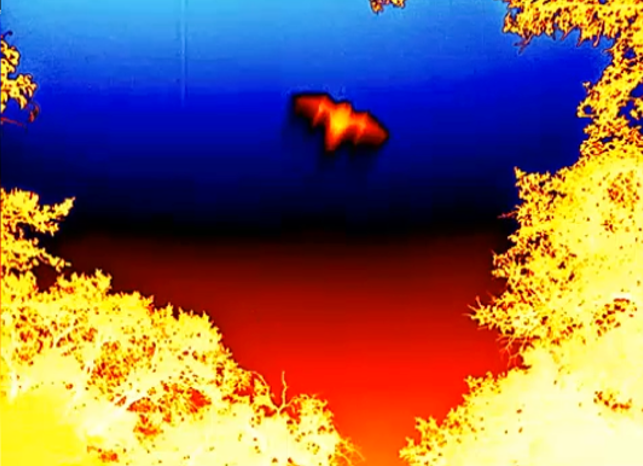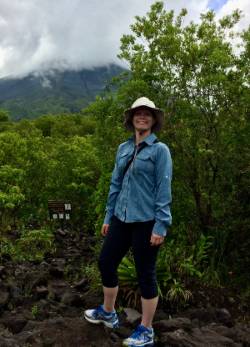Announcements
Dr. Lavy was just awarded a grant as co-PI through the NSF Civic Innovation Challenge (CIVIC) Program: Climate and Environmental Instability - Building Resilient Communities through Co-Design, Adaption, and Mitigation entitled Enhancing community resilience to tree damages under ice storm events through co-design and co-learning. In an exciting new collaboration with the University of Oklahoma, Dr. Lavy is spearheading a groundbreaking initiative to protect communities from the dangers of ice storms. By teaming up with community members, Dr. Lavy and his team will map tree hazards that could pose risks during these storms, creating a real-time, citizen-driven reporting system. This effort aims to boost community resilience, improve urban forestry management, and help shape smarter disaster preparedness strategies. The project kicks off with hands-on workshops, where residents will play a direct role in shaping this innovative approach to environmental risk management. The team will gather insights to fuel the development of a comprehensive proposal for the next stage of this vital work.
Dr. Allison D. Stamatis recently joined the Department of Environmental & Sustainability Sciences in August 2024 as an Instructor II. She previously taught at Weatherford College in Parker County and has an extensive background in teaching a variety of environmental science and biology courses. One of Dr. Stamatis’s interests is engaging with the community in outreach education. She attended medical school from 2000-01 prior to pursuing her masters in Biology and then her Ph.D. in Environmental Science. Additionally, she taught human anatomy and physiology for 13 years at the undergraduate level. These experiences have helped Dr. Stamatis counsel and guide numerous students in their pursuit of further education and careers in the healthcare industry. She is excited to enrich the lives of students at TCU and better the environment through education and action.
Manuel de Oyarzabal Barba recently published research from his graduate thesis in Wildlife Biology. Manuel’s research focused on improving urban flyways for bats. Urbanization often creates barriers for wildlife, but Manuel’s work showed that landscape connectivity can be improved through strategic management of urban tree canopies. By examining various tree characteristics like canopy cover, rugosity, gap distance, and height, Manuel discovered that well-structured urban forests can encourage bat commuting and increase species diversity. His study highlights the importance of maintaining and planning tree-lined corridors and forest edges to facilitate better movement for bats in urban areas. These insights offer valuable guidance for urban planning and wildlife conservation efforts.

Elizabeth (Izzy) Agpalo is the recipient of the Anna M. Jackson Award, a Graduate Student Honoraria Award from the American Society of Mammalogists for their research. She will have the honor of presenting her research at the opening Plenary Session of the 100th Annual Meeting of the American Society of Mammalogists in June 2021. It comes with a $2000 stipend.
James McGee and Lyall Blanche received travel grants from the American Society of Mammalogists to present their master's thesis research at the 100th Annual Meeting of the American Society of Mammalogists in June 2021.
Dr. Brendan L. Lavy will join the Department of Environmental Sciences in fall 2020 as an assistant professor in the area of sustainability science. He has teaching and research interests in urban sustainability and resilience, disaster recovery and reconstruction, and environmental resource management. Within these areas, his research projects include studying how municipal environmental ordinances and their outcomes support urban sustainability initiatives, how the recovery of parks and protected places influences the recovery of communities impacted by disasters, and how drought and urban growth affect across to water resources. His research is primarily Texas-based with ongoing projects in Central Texas and the Texas Coastal Bend. Dr. Lavy will teach Introduction to Sustainability Science in the fall.
We have a funding in the form of tuition waiver and stipend to support one to two outstanding student(s) in the master’s level to work in a collaborative project between the Department of Environmental Sciences and Institute of Ranch Management starting Fall 2020/Spring 2021. The student(s) will have opportunity to enhance their research skills and experience in hydrology and native grasses ranch management. The primary responsibilities of the student(s) will be to (i) analyze existing weather station data along with grazing management and forage clip data, (ii) collect species surveys and forage clips as well as the onsite hydrological data from the TCU’s Living Lab research site, and (iii) disseminate the research findings via conference presentations and journal publications. Successful candidates should possess an undergraduate degree in environmental science, agriculture, natural resources or related field. Students with an outstanding academic record, GIS and data-analysis skills (ArcGIS, Excel, Statistics) and past research/field-work experience are preferred. Interested candidates may contact Dr. Gehendra Kharel (g.kharel@tcu.edu, principal investigator) or Professor Becky Johnson (becky.johnson@tcu.edu) for more information about this opportunity.
Interested candidates should apply to the Master of Science (M.S.) in Environmental Science in the College of Science and Engineering using the following link: https://www.applyweb.com/tcug/index.ftl. Be sure to include an application for financial aid. Applications will be reviewed as they are received.
